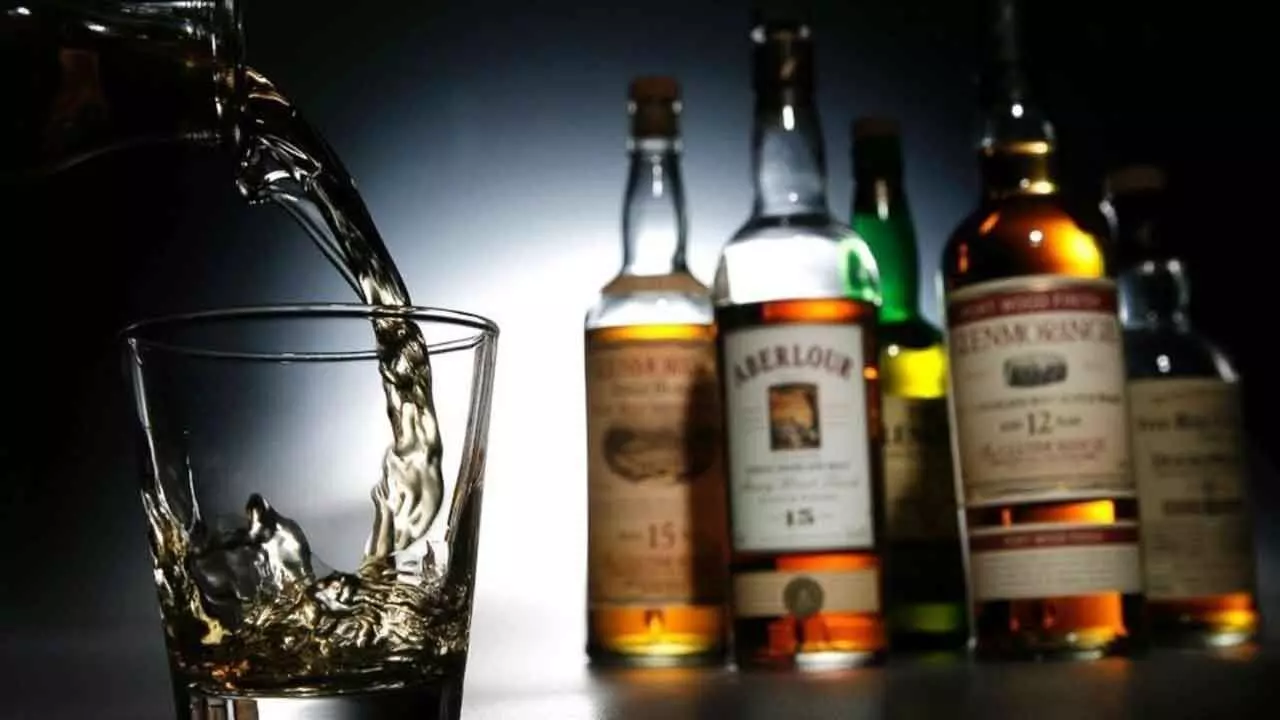Early Conclusion Of India-UK Trade Talks Will Boost Scotch Whisky Exports To India
Improved market access to Scotch will enable more Indian consumers to enjoy the premium product
Early Conclusion Of India-UK Trade Talks Will Boost Scotch Whisky Exports To India

A liberalized tariff, will result in Scotch whisky’s market share treble to six per cent, giving greater access for Indian consumers without disturbing the dominant share enjoyed by whiskies and other spirits
Scotch has long been a status symbol in India, but still has only a two per cent share in the world's largest whisky market.
India is the second largest export market for Scotch whisky by volume, with the equivalent of more than 219 million bottles exported there in 2022. The volume of its exports to India has grown by more than 200 per cent in the past decade alone, while whisky is so hugely popular here that India is the world’s largest whisky market. But while many Indian consumers are keen to add a bottle of Scotch to their shelves, bars and collections, it has a mere two per cent share of the Indian whisky market. There is huge potential for that to grow.
The FTA negotiations offer new hope for reducing the longstanding 150 per cent tariff on Scotch whisky. The UK-India trade talks are a golden opportunity to reach an ambitious tariff reduction in an early harvest deal that could grow Scotch whisky exports to India by £1 billion in over five years. Tackling the tariff and state-level regulatory issues would open up the market to smaller producers who are effectively locked out by the substantial barriers to trade.
Improved market access to Scotch would enable more and more Indian consumers to enjoy the premium product. It would also be good for the industry and the Centre in terms of tax revenues, which is a win-win for all.
SWA CEO, Mark Kent says, “Scotch whisky is popular among Indians but a 150 per cent tariff on imports mean that it’s significantly more expensive to buy Scotch compared to the Indian whiskies. This is the reason why many ‘fake’ Scotch whiskies have entered the market. This unfair competition, alongside the tariff and combined with the complexity of exporting whiskies into India, mean that many Scotch whisky producers are unable to enter this important market. Breaking down these barriers can be by way of a UK-India trade deal as it has the potential to increase Scotch whisky exports to the country by £one billion over the next five years. This can reduce cost of the premium product. A liberalized tariff, will result in Scotch whisky’s market share treble to six per cent, giving greater access for Indian consumers without disturbing the dominant share enjoyed by whiskies and other spirits.
Many more Scotch whisky companies, including smaller and independent producers, would gain access to the Indian market. If the tariff is reduced and exports were to rise, India would overtake France as Scotch whisky’s second largest market by value worldwide, second only to the United States.
Boosting access to the Indian market would secure jobs and investment in the Scotch whisky industry across Scotland into the future. The industry’s contribution to the economy would rise by more than £300 million to nearly £six billion.
Higher exports mean higher production and there would be a significant impact into our supply chain too, in Scotland and across the UK, also growing jobs and investment.
Bringing down the tariff would increase Indian government tax revenue at the central and state-level by £3.4 billion annually through an increase in sales.
Scotch whisky would be able to compete fairly alongside Indian whiskies, which will continue to dominate the domestic market.
Because a lot of the whisky exported to India is sent in bulk (some for bottling as Scotch whisky, most for use in Indian whisky) bringing down the tariffs would also support domestic producers, reducing their costs and boosting employment.
Blended whisky, which is cheaper, has long been the preferred choice for millions of Indian consumers. But demand for more expensive single malts has been growing too, driven by cultural shifts and a rise in their spending power.
While India's share in global Scotch sales has surged - export volumes rose more than 200 per cent over the past decade - exporters see further room to grow.
India charges 150% import tariff on each bottle of
SWA hopes that a long-awaited trade deal between India and the UK could help ease this - the two countries missed a deadline last October to conclude the agreement, but have conducted several rounds of talks so far.

